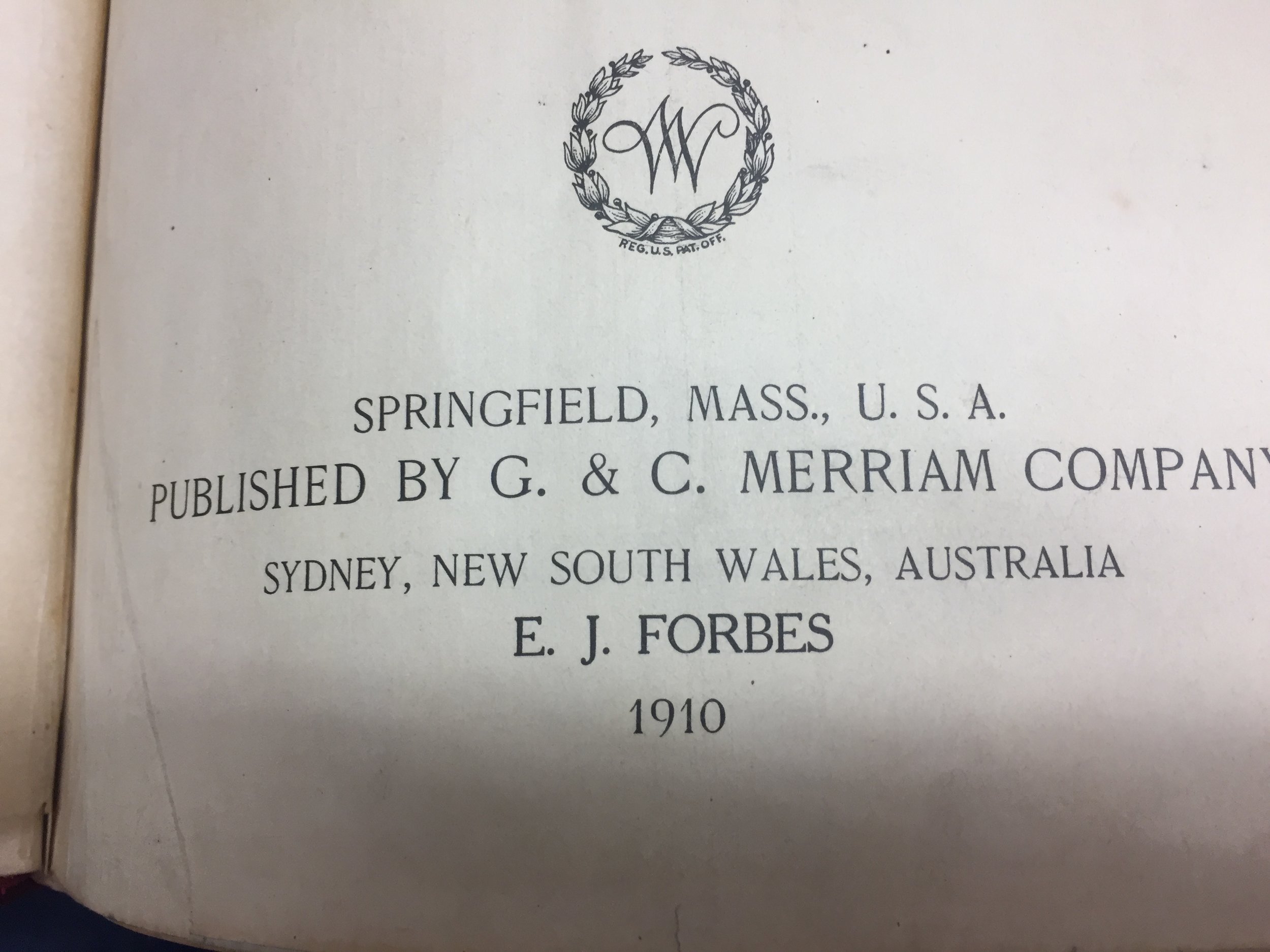Australian Placenames
I wrote about Elias John Forbes, his role as agent for the Webster International Dictionaryand his defence of American spelling, but he was a man who had other interests. One was Australian placenames. He wrote to the Sydney Morning Heraldon the subject. His letter to the Editor was published on 2 June, 1900.
Sir, -- Nothing which concerns Australia can fail to interest Australians instinct with a true national spirit; but it frequently happens in a new country that things artistic and graceful and orderly are ignored in the presence of ruder, more forceful work involved in the making of a nation. Unfortunately, also, the things done in the green leaf are indelibly marked on the day; and we have ample cause to regret the capricious, fantastic, and occasionally repellent placenames, which it sometimes pleased the pioneers to bestow upon many localities in this country, instead of adhering to the strange melodies of the aboriginal tongue.
Forbes goes on to complain, that where Aboriginal names have been adopted, the spelling is given with numerous variations because the settlers had attempted to render the pronunciation in the Aboriginal language into English and arrived at different solutions to this problem. These variations made their way into official records. The Department of Lands and the Postal Department recorded Adaminaby and Adiminby respectively, Boorowa and Burrowa, Barrenjoey and Barranjoey, Bogabri and Boggabri, and so on.
In answer to the comment that, whether the spelling is Tumbarumba, Tumberumba or Tumbarumbah, everyone knows what is meant, Forbes maintains a severe demand for standards. ‘A slovenly mode of spelling placenames, which already disfigures the official prints of the colony, … if not corrected, will disfigure our literature and our written history.’
Forbes points to similar difficulties encountered in America, the solution there being to set up the United States Board of Geographic Names with members who served without additional compensation so that the government incurred no additional expense. Forbes recommends that a similar body be established in New South Wales.
He then outlines the principles established by the American body:
1. That spelling and pronunciation which is sanctioned by local usage should in general be adopted.
2. Where names have been changed or corrupted, and such changes and corruptions have become established by local usage, it is not in general advisable to attempt to restore the original form.
3. Where a choice is offered between two or more names for the same place or locality, all sanctioned by local usage, that which is most appropriate and euphonious should be adopted.
4. The possessive form should be avoided whenever it can be done without destroying the euphony of the name or changing its descriptive application.
5. The use of hyphens in connecting parts of names should be discontinued.
6. In the case of names consisting of more than one word it is desirable to combine them into one word.
This all seems remarkably sensible. There was a follow-up letter from a representative of the Royal Anthropological Society of Australasia, expressing agreement with Forbes on most things but querying his remark that ‘owing to the extinction of the aborigines it is almost impossible to determine or fix the true native name’. Not so, says F.H.C., the society’s representative. A lot of work had been done and published in the linguistic columns of their journal. ‘Lists containing the names of towns and districts in New South Wales bearing native names have been published, in which the origin, meaning and spelling of the said names were clearly established. ‘
F.H.,C claimed that it was then possible to check these names against glossaries of particular languages to establish the correct spelling. For example, one of the places which had much variation in its name was Murrimbula, also Morimbula. By consulting the language glossary you could find, he argued, that the spelling should be Merimboola, meaning ‘the place of the big snake’ from merit, ‘a snake’, and boola, ‘a place of’.
Finally F.H.C. offered the services of the society to assist in the work, with one or more representatives on the Board.
